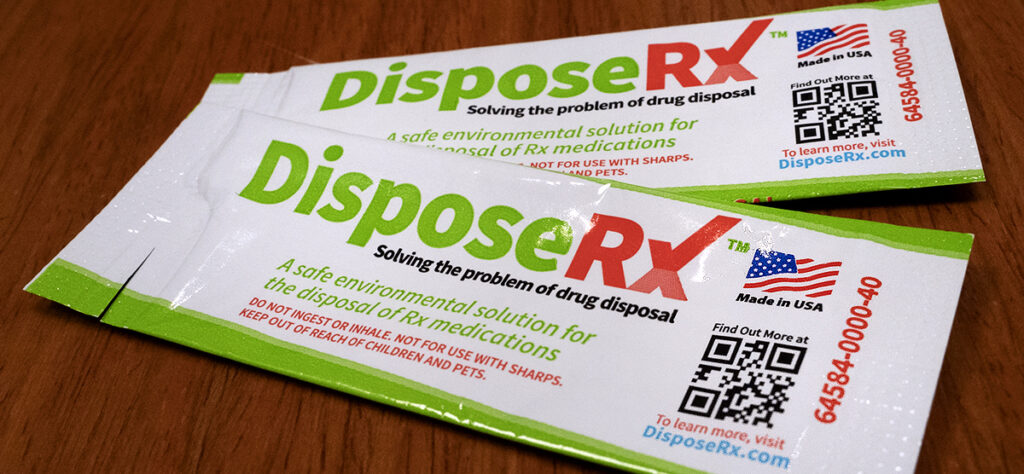
7 Ways to Improve an Already Effective Treatment for Stimulant Use Disorder
New Commentary Suggests Ways to Make Contingency Management More Effective For Drugs Like Cocaine and Methamphetamine
Opioid Epidemic
Blog Post

The opioid epidemic continues to take a heavy toll on the nation. One upstream strategy to help reverse it focuses on the safe disposal of prescribed opioids left over after a prescription is no longer needed. Accounting for up to 70% of opioids prescribed following common surgeries, these pills sit in cabinets or on countertops, posing a potential risk to the patient, their family or loved ones, and the broader community. Extra opioids can contribute to prolonged use, future misuse, and community diversion, all of which contribute to the overarching epidemic.
We examined the potential of mailing a simple, low-cost ($1.50/patient), at-home opioid disposal kit to improve opioid disposal rates following common surgeries. The DisposeRx kits are roughly the size of a ketchup packet and contain a powder that renders medications unusable when mixed with water according to directions.
As we recently reported in JAMA Network Open, we conducted a randomized controlled trial comparing mailed disposal kits to usual care. Usual care comprised a text message reminder to dispose of leftover opioids accompanied by a link to nearby disposal “take-back” sites.
We followed the 302 patients in the trial by tracking the data that they entered—on levels of pain, opioid use, and opioid disposal—into an automated post-operative text messaging program developed by our team. We found that while 42.7% of usual care patients reported disposal, 60.0% of patients mailed an at-home kit reported disposal, resulting in the disposal of approximately 500 extra pills.
As clinicians and health systems attempt to “right-size” opioid prescribing to adequately address pain while not overprescribing, efforts that encourage opioid disposal are equally important. Current disposal options all have drawbacks that deter disposal:
Our findings suggest that the mailed at-home disposal kits provide a simple method that could help motivate patients to dispose of unused opioids following surgery. Timing the kits’ arrival may also play a key role in their success. Our prior work showed that following common surgeries, patients often finish using opioids around post-operative day four, and kits arriving at this point can act as a convenient disposal reminder.
As the FDA considers mail-back programs and other potential new avenues for disposal, our work highlights the need to make the “right decision the easy decision” for patients.
The study, Effect of Mailing an At-Home Disposal Kit on Unused Opioid Disposal After Surgery: A Randomized Clinical Trial, was published in the May 6, 2022, issue of JAMA Network Open. Authors include Anish K. Agarwal, Daniel Lee, Zarina Ali, Yaxin Wu, Mary Cognilio, Tanya Uritsky, M. Kit Delgado.


New Commentary Suggests Ways to Make Contingency Management More Effective For Drugs Like Cocaine and Methamphetamine

A Gathering of Experts Focuses in on the Positive Impact of Contingency Management

Only 1 in 3 Pregnant or Postpartum People with Private Insurance Receive Needed Treatment

Untreated Withdrawal May Be the Cause, Researchers Say

Prescribing by Pain Level, Age, and Previous Use May Reduce Excess Pills

Addiction and Recovery Specialists Provide Evidence for Methadone Distribution Changes